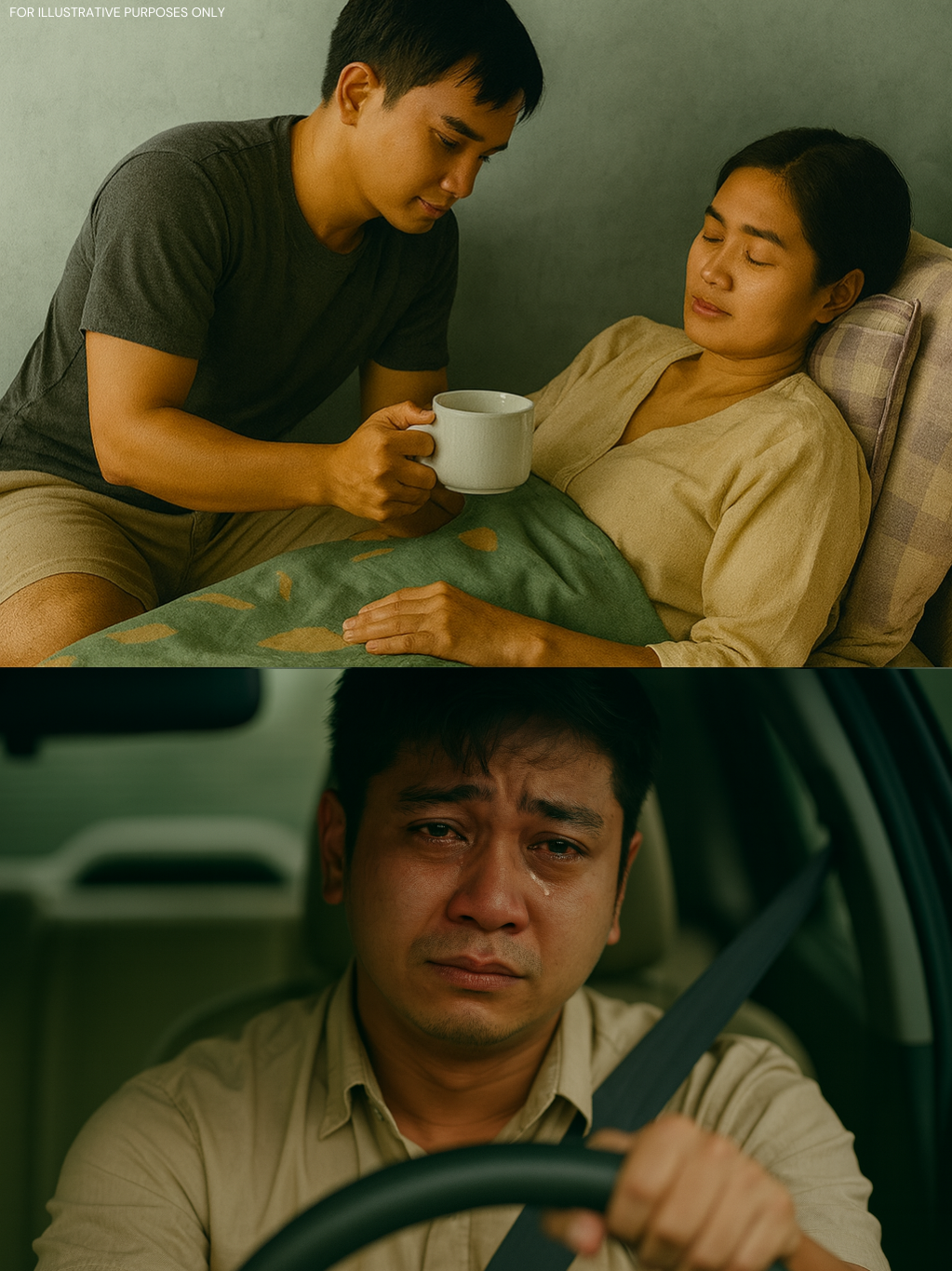
My name is Daren, thirty-four, once a sales executive in Cebu. For most of my marriage, my wife Liana had been the kind of woman who lit up a room without effort. Her presence was calming, her gestures graceful, her words thoughtful. Life with her wasn’t extraordinary, but it was steady. Safe.
Four months ago, everything changed. A sudden car accident left Liana partially paralyzed, confined to bed, depending on me for the simplest movements. I wanted to be her strength. I told myself I could endure the sleepless nights, the silence that replaced intimacy, the distance that grew between us. But temptation found me in ways I never expected.
Karina, a co-worker from office, stepped into my life at precisely the wrong moment. Sharp, flirtatious, dangerous in her confidence. At first, our exchanges were harmless, late-night jokes, a shared taxi ride, hands brushing too long. But during a business trip to Kuala Lumpur, the line I thought I would never cross disappeared. Ten reckless nights of stolen kisses, perfume-soaked sheets, and lies I buried in my chest.
When I returned home, I expected fatigue, guilt, maybe even relief. What greeted me instead shook me to the core.
Liana was standing.
She leaned on a cane, dressed in a fitted ivory dress, her hair swept into a simple bun. She met my shocked expression with a faint smile that didn’t reach her eyes.
“You’re walking…” I stammered.
Her voice was steady, almost tender. “The doctor cleared me two weeks ago. I didn’t say anything. I wanted to see what choice you would make when you thought I couldn’t move.”
My chest tightened. On the table, a tablet played footage from a hidden camera. Karina and I in a hotel room, tangled in sheets. Beside the screen sat my sister, my cousin. No one spoke. The silence suffocated me. The silence in that room was heavier than a storm.
Liana looked straight into me. “I thought even if I became useless, as long as your heart was still here, I could survive. But now I see… the one who was truly paralyzed in this house wasn’t me.”
I dropped to my knees, words spilling that meant nothing. Forgiveness never came.
Weeks later, I received the annulment papers. The house was in her name. My reputation at work collapsed as whispers spread. Mei vanished without a trace. What I traded years of loyalty for was nothing but ash.

The months after were a slow unraveling. I rented a cramped studio, living off cheap noodles and canned sardines. Jobs slipped through my fingers. Once, people used to greet me with respect in meetings; now, doors closed before I could even finish my pitch.
One afternoon, walking through Makati, the smell of freshly baked bread caught me. I stopped at a bakery, stomach growling. And through the glass window, I saw her.
Liana. She was radiant, stronger, her movements fluid. Across the table sat a man, young, well-dressed, his hand resting over hers with a natural ease. They laughed together, a picture of the happiness I once held and carelessly lost.
I couldn’t step inside. That night, I drank myself into a stupor.
Life, however, has its strange ways of cornering you until you have no choice but to face yourself.
One evening, applying for a courier job at a logistics firm, I ran into Selene, one of Liana’s former physical therapists. I tried to slip away, ashamed, but she spotted me instantly.
“You look like you haven’t eaten properly in weeks,” she said gently.
I expected scorn, but she didn’t offer it. Instead, she listened as I confessed the mess I had made. When I ran out of words, she leaned closer and said, “Daren, you shattered something rare. But destruction doesn’t mean you’re incapable of creation. The real question is, will you keep searching for easy warmth, or will you finally face the man staring back at you in the mirror?”
Her words pierced deeper than anger ever could.
The weeks that followed marked the beginning of something different. I stayed single. I went to therapy, fought through my guilt, and worked odd jobs without shame. Slowly, I began sending anonymous donations to the rehabilitation foundation Liana had helped establish. It didn’t erase the past, but it was a way to at least contribute to something meaningful.
Months later, I walked past the same bakery again. This time Liana wasn’t there. I didn’t stop, didn’t stare, didn’t ache. I simply walked on.
And as the late afternoon sun painted the city streets gold, for the first time in a long while, I smiled—not because I had reclaimed her, but because I was finally learning how to stand on my own.